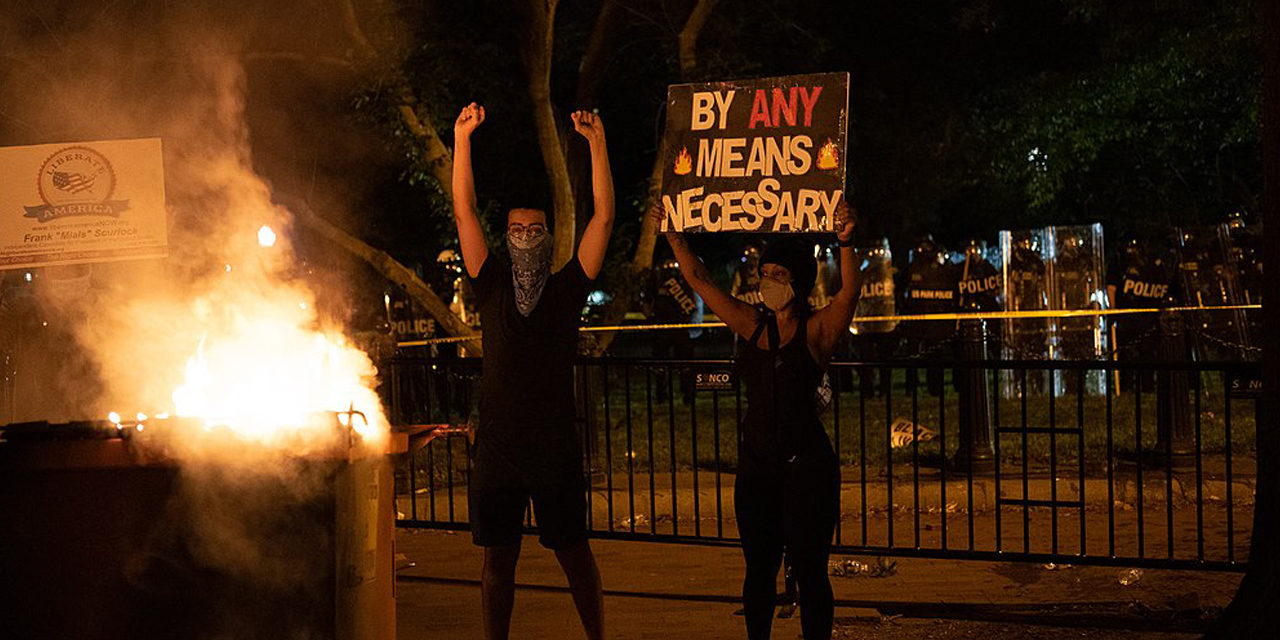There is a saying, “Idle hands are the Devil’s workshop.” From looting and violence to vandalizing the nation’s monuments, it is often young people, especially young men, leading the charge. While this chaos, led by some protestors and anarchists, is in reaction to the death of George Floyd, this extreme level of destruction could also partially be the result of a weakened economy due to the coronavirus pandemic.
As part of the “protests” in Washington D.C., some of the nation’s most famous monuments, including the Lincoln Memorial and the World War II Memorial, were vandalized. In response, the Mall National Park Service (NPS) has pleaded with the vandals to avoid such criminal acts.
On Twitter, the official National Mall NPS wrote, “In the wake of last night’s demonstrations, there are numerous instances of vandalism to sites around the National Mall. For generations the Mall has been our nation’s premier civic gathering space for non-violent demonstrations, and we as individuals to carry on that tradition.”
Since its inception, the Lincoln Memorial has been the site of many world changing, peaceful protests. Who can forget the iconic “I Have a Dream Speech” delivered by Rev. Martin Luther King Jr. before 250,000 people during the “March on Washington.”
Instead of taking inspiration from President Abraham Lincoln and promoting unity, the vandals decided to take spray-paint and write, “Yall not tired yet” on the steps leading up to the memorial. At the National World War II memorial, the protestors also spray-painted “Do Black Vets count?” and defaced other sites.
As the protests turned increasingly violent and destructive, the purpose surrounding the demonstrations has been almost entirely lost. While it’s understandable that people are outraged over the death of George Floyd, another underlying factor could be the economic downturn that’s occurred due to the coronavirus pandemic.
It’s never a good thing when a country has relatively high youth unemployment.
This is usually only a problem in developing countries, as those nations generally have higher birth rates and a smaller elderly population. But with COVID-19 causing the closing of stores, restaurants and universities across the country, which usually employ young adults, the nation’s youths have little to fill their time. As a result, this may have contributed to the violence and looting we’ve seen across the country.
In a research study completed at the University of Birmingham, UK, about the connection between youth unemployment and violence, it concluded that “evidence was strongest for economic crisis leading to increased crime, including increased juvenile crime.”
According to The Century Foundation, young people, especially those of color, are hit hardest by economic down turns. “Students and young people are often left out of unemployment insurance programs, either because they do not have sufficient work history, or because they work part-time, and their earnings are too low or do not meet the requirement for part-benefits under their state’s rules. At the same time, young people often face very high unemployment during economic downturns, and young people of color face the biggest barriers to work.”
Due to the lack of work and questions about when schools will reopen, people, especially young adults, have a lot of time on their hands. This leaves them more opportunities to organize and lead demonstrations, both peaceful and violent.
A report by USAID determined that, “Unemployment is an important component of the risk associated with this age group. Young people often participate in violence because membership in extremist organizations provides immediate economic benefits, because violence itself offers opportunities for economic gain through direct payment or looting, or because conflict promises to open up longer term economic options, for example, through patronage if ‘their’ ethnic or religious group captures power.”
This USAID report was discussing what happens in developing countries, but it’s not difficult to see how this analysis mirrors what we’re currently experiencing as a country. Youth unemployment also heavily contributed to the Arab Spring, a movement meant to topple the brutal governments in several countries, but instead resulted in almost a decade of civil war in Syria, ISIS, failed nations (Yemen, Libya, Syria), proxy wars driven by Iran and just general instability in the region.
Is unemployment and economic despair a reason to riot, vandalize and incite violence? No, but that doesn’t mean it isn’t a factor. A year ago, would the protests have been this destructive? Probably not because more people had jobs and were less incentivized to destroy their communities. With so many disenfranchised and unemployed, about 40 million according to the latest report from the U.S. Department of Labor, it likely becomes more tempting to deface national monuments and engage in criminal acts like looting.
As more of the country opens back up, hopefully more people will get back to work and something like this is less likely to happen.
Photo from Rosa Pineda






